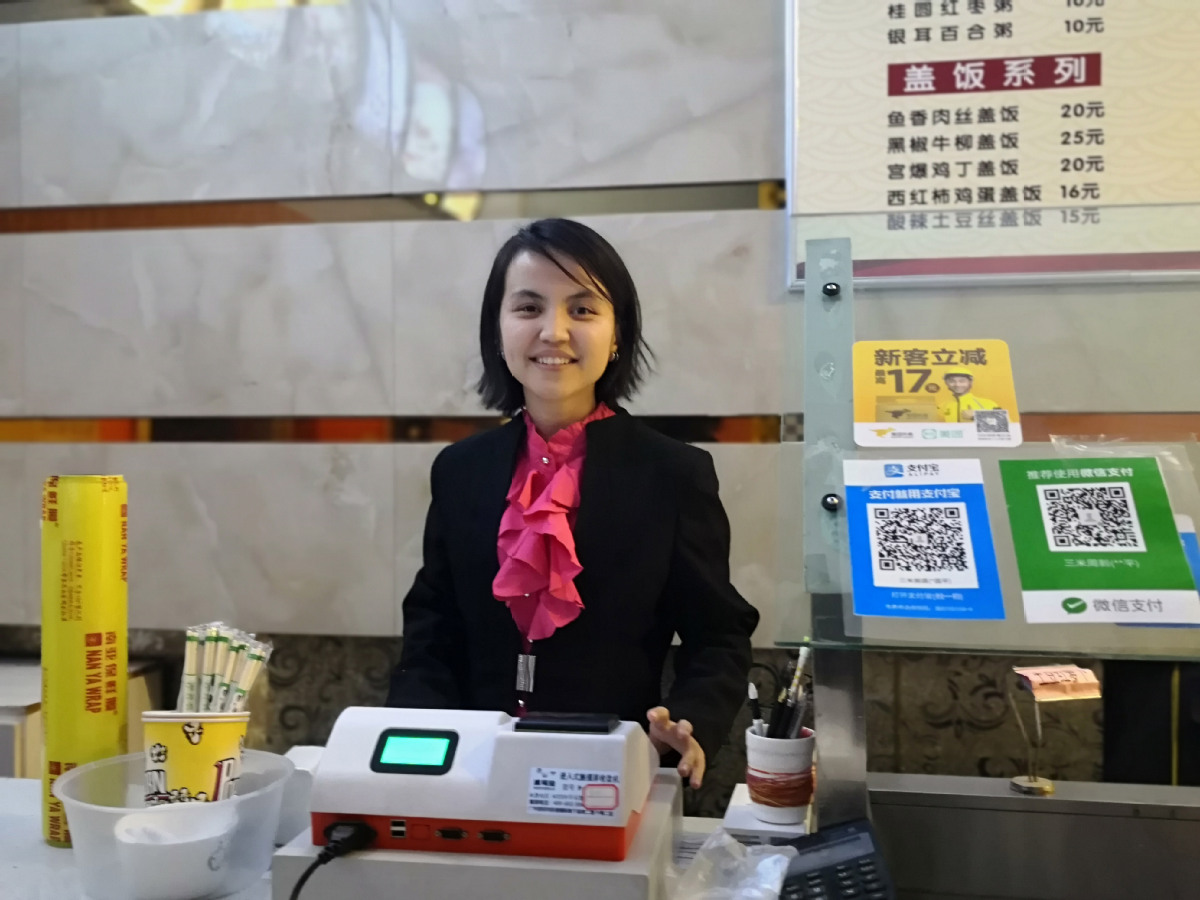
Halnur Halik, a Uygur mom who is allegedly "missing" on social media platforms such as Twitter and Facebook, works at a restaurant in Turpan, Xinjiang Uygur autonomous region. (Photo: chinadaily.com.cn)
Halnur Halik said she was furious after learning her personal information was used in an online campaign to "find missing Uygurs in China" while she had been busy working toward a better life in the Xinjiang Uygur autonomous region.
Some individuals, overseas organizations and media have been posting photos and names of allegedly missing Uygurs on social media platforms including Twitter and Facebook, to smear China's policy in Xinjiang.
Many of the posts have been shown to have "distorted the truth or be fabricated stories", Xu Guixiang, deputy head of the Publicity Department of the Communist Party of China Xinjiang Uygur Autonomous Region Committee, said on Wednesday.
On Dec 12, Twitter user Abdulla Rasul wrote in a post tagged "StillNoinfo" that Halnur, 24, a mother of two, was among those still missing, even though Halnur has been working as a waitress at a restaurant in Turpan since May.
Abdulla Rasul is her cousin's husband and the couple moved abroad many years ago, Halnur said. Abdulla's Twitter account says he is based in Istanbul, Turkey. "I only met Abdulla once, when he and my cousin got married, and seldom have had contact with them since. I don't understand why he said I was missing," she said on Wednesday.
Halnur attended a vocational education and training center in 2018 after having been influenced by thoughts of religious extremism since high school. "I dropped out of my school, although I was a very good student, because the religious extremists told me that going to school was useless. Later, I also refused to go to work and focused only on taking part in religious extremist activities," she said.
The establishment of the centers in Xinjiang has been an effective preventive measure to help eradicate extremism in the region, which is believed to have led in the past to frequent terrorist attacks in Xinjiang, officials said. The centers provided courses on standard Chinese language, laws, vocational skills and deradicalization programs.
People who took part in the courses have all graduated. The centers will be open to all local residents and officials who wish to improve their standard Chinese language and vocational skills and legal knowledge, Shohrat Zakir, regional government chairman, said this month.
"I was worried about whether people would be willing to give me a second chance after I graduated, but a restaurant owner immediately recruited me after I graduated from the center in May," said Halnur.


